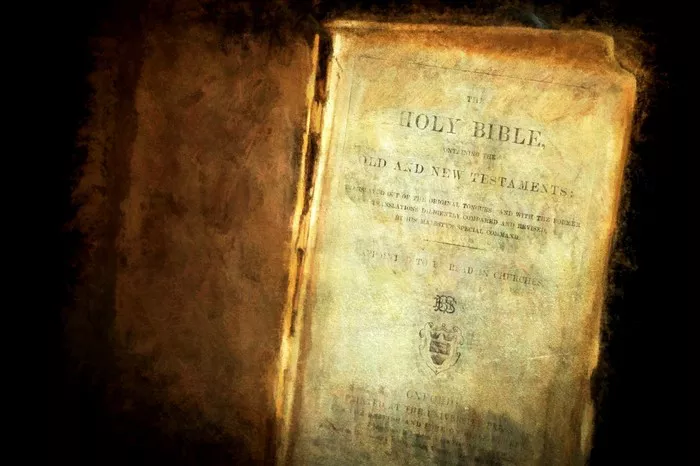When delving into the origins of the New Testament, one inevitably encounters a diverse array of texts, each with its own historical and theological significance. However, amidst this rich tapestry of literature, one particular epistle stands out as the oldest book of the New Testament: the First Epistle to the Thessalonians. Widely attributed to the Apostle Paul, this letter holds a pivotal place in Christian scripture, offering insights into the early Christian community and its beliefs. In this article, we will explore the dating of 1 Thessalonians, the methods used by scholars to ascertain its age, its significance within the New Testament, and its enduring relevance for understanding early Christianity.
The Dating Process
Scholars utilize various methods to date New Testament texts, combining internal evidence, external evidence, and linguistic analysis to construct a timeline of composition. Internal evidence involves scrutinizing the content of the text itself for historical references, events, and figures. For instance, in 1 Thessalonians, Paul makes mention of his recent visit to Thessalonica (1 Thessalonians 2:1-2), providing a historical anchor for dating the letter. External evidence entails comparing the text with other historical documents and archaeological findings. In the case of 1 Thessalonians, scholars examine early Christian writings and traditions, as well as relevant historical sources, to establish its chronological placement. Linguistic analysis involves studying the language and writing style of the text to estimate the time of its composition. By analyzing vocabulary, syntax, and linguistic conventions, scholars can discern whether a text aligns more closely with earlier or later periods of linguistic development.
Overview of the New Testament’s Composition
The New Testament comprises 27 books written by various authors over several decades, spanning diverse genres such as Gospels, epistles, and apocalyptic literature. These writings reflect the beliefs, experiences, and teachings of early Christian communities in the first century CE. The Gospels, including Matthew, Mark, Luke, and John, offer accounts of the life, ministry, death, and resurrection of Jesus Christ. The epistles, attributed to apostolic figures such as Paul, Peter, and John, provide theological instruction, pastoral guidance, and exhortation to burgeoning Christian communities across the Mediterranean world. Apocalyptic literature, exemplified by the Book of Revelation, offers symbolic visions and prophecies concerning the ultimate triumph of God‘s kingdom over earthly powers.
The historical context of the New Testament is deeply intertwined with the life and teachings of Jesus, the emergence of early Christian communities, and the spread of Christianity throughout the Roman Empire. Jesus’ ministry, marked by acts of compassion, teaching, and miracles, challenged conventional religious norms and societal structures, garnering both devoted followers and fierce opposition. Following Jesus’ crucifixion and resurrection, his disciples embarked on a mission to proclaim the gospel message of salvation and redemption, establishing communities of faith in diverse cultural settings. Despite persecution and adversity, Christianity flourished, eventually becoming a formidable presence within the Roman Empire.
Significance of 1 Thessalonians
1 Thessalonians occupies a central place within the New Testament canon, offering valuable insights into the early Christian movement and its theological convictions. Written by the Apostle Paul around 50 CE, this epistle addresses the Christian community in Thessalonica, a city in Macedonia where Paul had previously preached the gospel. The letter serves as both an expression of Paul’s affection for the Thessalonian believers and a means of providing pastoral encouragement and instruction.
Key themes in 1 Thessalonians include Paul’s affirmation of the Thessalonian Christians’ faithfulness amidst persecution (1 Thessalonians 1:6-7), his exhortations to maintain purity and holiness in their conduct (1 Thessalonians 4:3-8), and his teachings regarding the Second Coming of Christ and the resurrection of the dead (1 Thessalonians 4:13-18). The letter reflects Paul’s deep concern for the spiritual well-being of the Thessalonian community, as well as his desire to strengthen their faith and resolve in the face of adversity.
Moreover, 1 Thessalonians provides valuable insights into the beliefs and practices of early Christianity, shedding light on the eschatological expectations of believers and the communal dynamics of first-century Christian communities. Paul’s pastoral care for the Thessalonians serves as a model for Christian leadership, characterized by love, compassion, and spiritual guidance. As such, 1 Thessalonians remains a vital historical and theological source for understanding the origins and development of early Christianity, offering a window into the vibrant tapestry of faith that characterized the first-century Church.
Conclusion
In conclusion, the First Epistle to the Thessalonians stands as the oldest book of the New Testament, attributed to the Apostle Paul and dating back to approximately 50 CE. Through a combination of internal evidence, external evidence, and linguistic analysis, scholars have discerned the historical context and theological significance of this epistle within the broader framework of early Christianity. As a testament to Paul’s pastoral care and theological insight, 1 Thessalonians continues to resonate with readers today, offering timeless truths and enduring encouragement for believers across the ages.


